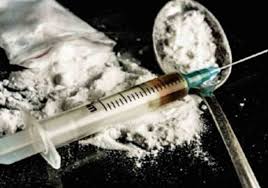Ice addiction among women rises by 40% in Lahore

RAWALPINDI, April 16: Director of Drug Advisory Training Hub, Syed Zulfiqar Hussain, has sounded the alarm over a 40% surge in ice addiction cases among women in Lahore during 2023. He pointed to the easy availability of drugs as a primary factor driving this alarming trend and announced the launch of the 'Drug Free Punjab' campaign by the Punjab government.
According to media reports, in response to the escalating crisis, Punjab Police, acting on Chief Minister Maryam Nawaz's orders, initiated a major crackdown. Within a span of 20 days, they registered a whopping 7,000 cases and apprehended 7,500 drug dealers, confiscating significant quantities of various narcotics.
IG Punjab Usman Anwar has vowed stringent action against those preying on the future of the youth through drug trafficking, ensuring they face severe legal repercussions.
The rise in drug use among women is a growing concern in Pakistan, with public smoking transitioning into the consumption of more potent substances like alcohol, hashish, cocaine, crystal, and ice.
According to a United Nations Office on Drugs and Crime survey from 2012 and 2013, 6% of Pakistan's population, approximately 60.7 million people, have consumed drugs other than alcohol and tobacco within the past year. This data indicates that 9% of men and 2.9% of women have engaged in drug use. Experts speculate that these numbers have seen a significant uptick in 2024.
Rehabilitation centers have reported an increasing number of women and young girls seeking treatment for drug addiction. Dr. Shamila Batul, a psychologist from a prominent rehabilitation center in Lahore, highlighted that societal stigma often leads families to opt for home-based treatment for their addicted daughters, making it challenging to compile accurate statistics.
Clinical psychologist Jahan Ara Rana emphasized the critical need for early detection of addiction signs and prompt intervention. "Drug addiction is a treatable condition. Post-recovery monitoring is crucial to prevent relapses," she advised.




